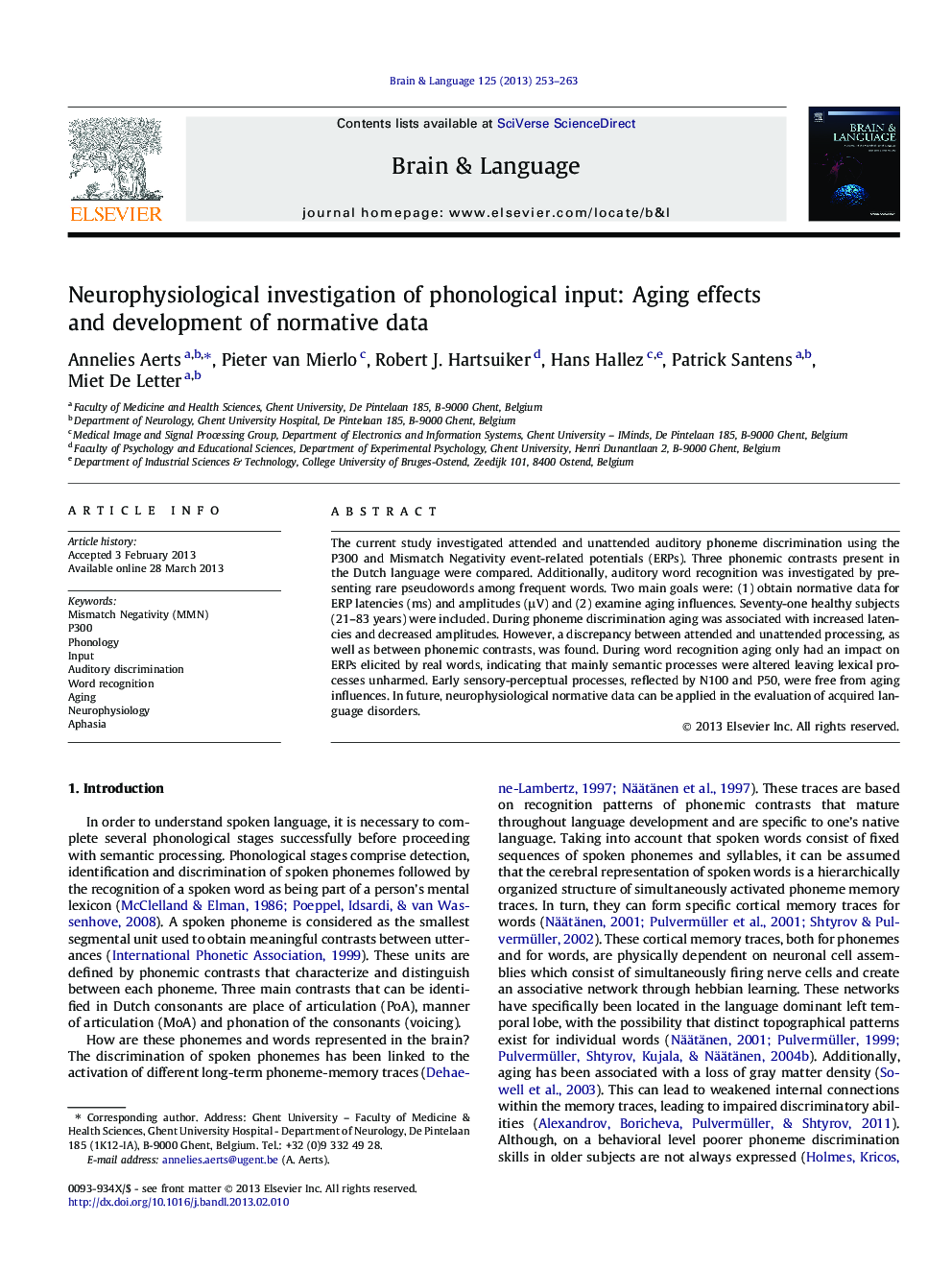| Article ID | Journal | Published Year | Pages | File Type |
|---|---|---|---|---|
| 925345 | Brain and Language | 2013 | 11 Pages |
The current study investigated attended and unattended auditory phoneme discrimination using the P300 and Mismatch Negativity event-related potentials (ERPs). Three phonemic contrasts present in the Dutch language were compared. Additionally, auditory word recognition was investigated by presenting rare pseudowords among frequent words. Two main goals were: (1) obtain normative data for ERP latencies (ms) and amplitudes (μV) and (2) examine aging influences. Seventy-one healthy subjects (21–83 years) were included. During phoneme discrimination aging was associated with increased latencies and decreased amplitudes. However, a discrepancy between attended and unattended processing, as well as between phonemic contrasts, was found. During word recognition aging only had an impact on ERPs elicited by real words, indicating that mainly semantic processes were altered leaving lexical processes unharmed. Early sensory-perceptual processes, reflected by N100 and P50, were free from aging influences. In future, neurophysiological normative data can be applied in the evaluation of acquired language disorders.
► Neurophysiological normative data for phonological input are developed. ► Aging influences on phoneme discrimination and word recognition are investigated. ► Aging influences differ depending on phonemic contrasts and level of attention. ► Mainly semantic processes are affected by age, lexical processes remain stable. ► Normative data can be applied in evaluation of acquired language disorders.
